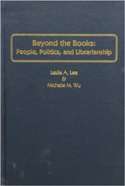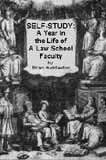Thus in this case the patient presented both an instance of self-cititillation and premature publication, the cited reference being both one "written" by the author herself, and which had not, yet, technically been published.
Kathryn Abrams, Exploring the Affective Constitution, 59 Case W. Res. L. Rev. 571, 593 (2009)
These insights aren't unique to the constitutional area, but there are particular advantages to acknowledging the role of emotion here, because the claims of dispassion and objectivity are particularly prominent, even exaggerated, in this area.122122The confirmation hearings for Justice Sonia Sotomayor, which were marked by acute anxieties on the part of several Senators about the threat to objectivity implied by the nominee's “wise Latina” remarks, provided a vivid illustration of this tendency. See Kathryn Abrams, Empathy and Emotion in the Sotomayor Hearings (Oct. 1, 2009) (manuscript on file with author).
In fact, this was a cite to not even a draft article, but an unpublished speech (which, of course, the professor may be turning into an article), that she gave at at Ohio Northern College of Law last fall:
Dr. Kathryn Abrams will speak on "Empathy and Experience in the Sotomayor Hearings" to kick off the Ohio Northern University Pettit College of Law Dean's Lecture Series in the Moot Court Room on Thursday, Oct. 1, 2009, at 11:30 a.m.Also, notice that in the article, she doesn't indicate the "manuscript" is from a speech. And that's another rant for another day: citing AS AUTHORITY something that is "unpublished" and which only the author, or the law review, has on file. I admit the possibility of some LEGITIMATE use of doing this: if, for example, you're citing to some rare document you viewed at the national archives, I guess. But... oh, God - I just ran a quick search in Westlaw's JLR, just to see how often this is done, just trying the first thing that came to my mind:
(See http://www-new.onu.edu/node/22101)
"unpublished manuscript" /5 "on file"
And - just guess - well, I don't really have any readers, but if anyone ever comes across this, think to yourself how many hits you imagine this would get. I was thinking MAYBE one or two hundred, at the most, and THAT would have been excessive. But, no. Wow. This query maxes out the Westlaw search engine and returns the default TEN-THOUSAND hits.
I do NOT have time to process that. TEN THOUSAND cites to unpublished manuscripts? I know that a few law reviews are putting these "on file" resources on their web sites and are including links to them in the articles, but most are not.
OK, concluding point to the original blog topic: Yes, if you’re the top, leading expert in a narrow area of law, and you’re building on some earlier research that you published, citing your own work is acceptable. But to support a statement that, basically, says the debate about the role of "dispassion and objectivity" in judges' interpretation of the Constitution is on-going and controversial, and how Justice Sotomayor's confirmation hearings dealt with that debate (said hearings and accompanying were, I believe, well-covered in the news last summer, right?), by citing to your own unpublished speech transcript is both lazy and self-aggrandizing.





1 comment:
I enjoyed readiing this
Post a Comment